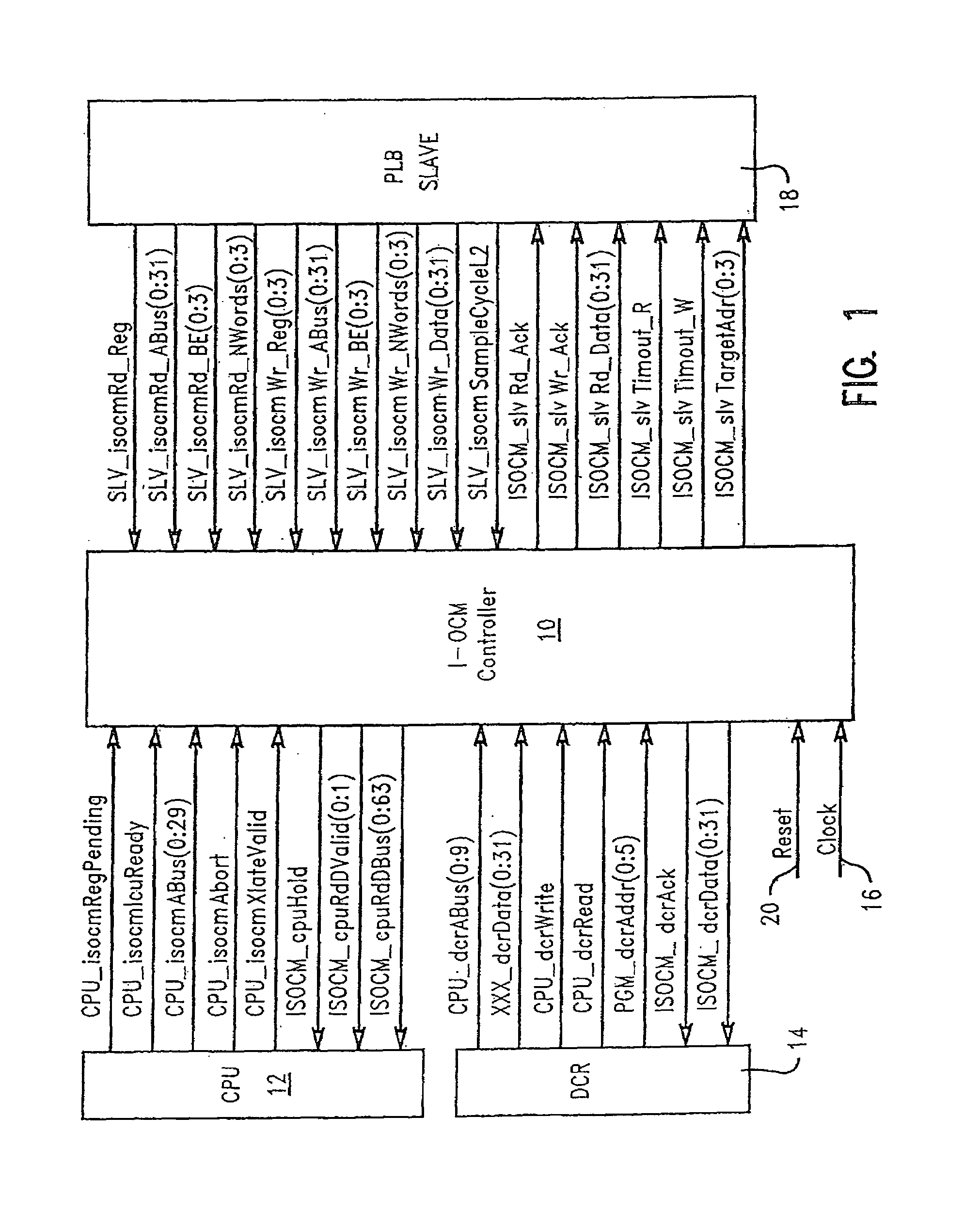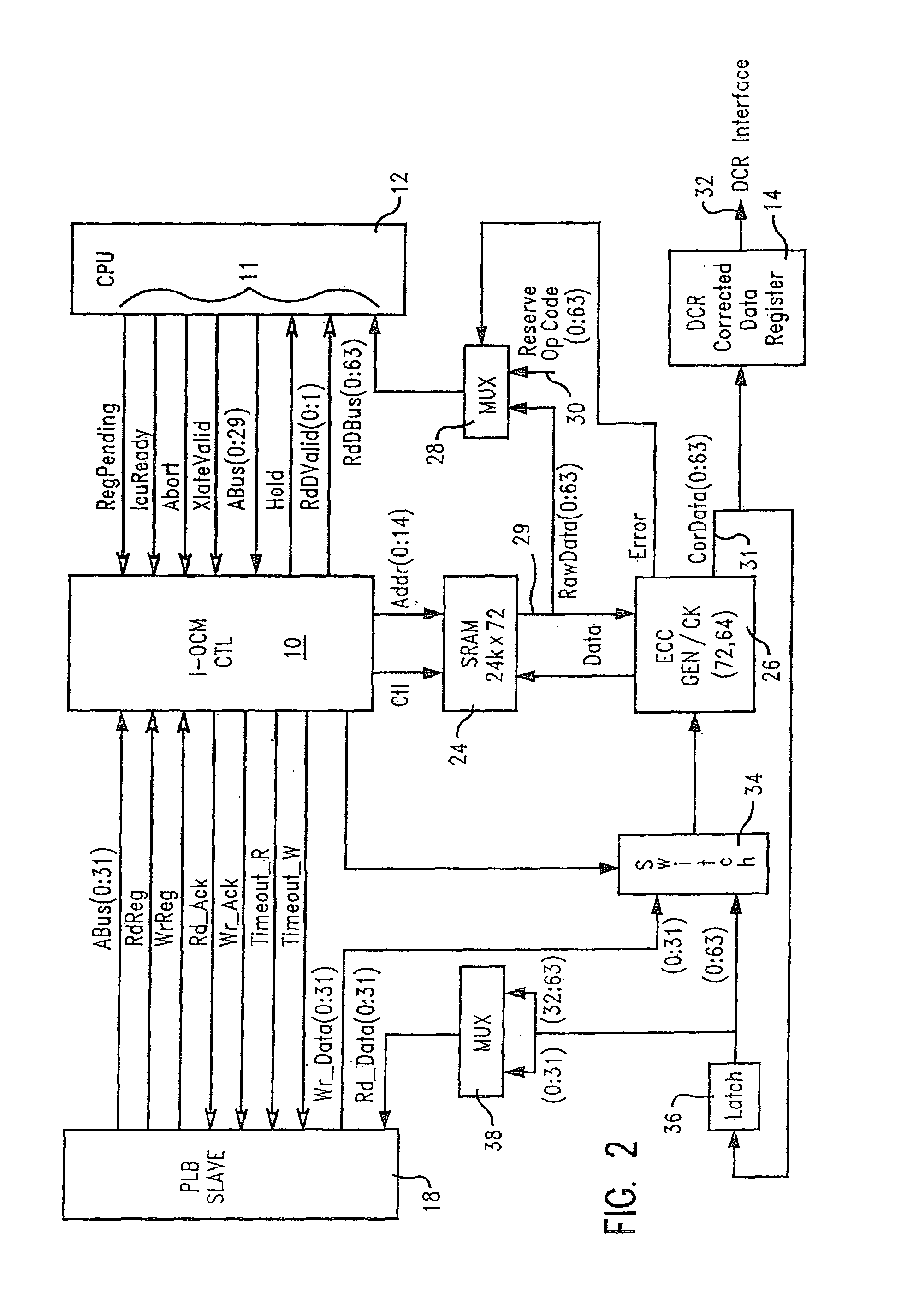Method and system for optimized instruction fetch to protect against soft and hard errors
a technology of instruction fetch and protection against soft and hard errors, applied in the field of computerized data processing, to achieve the effect of reducing the performance penalty of the processor and maximizing the integrity of data
- Summary
- Abstract
- Description
- Claims
- Application Information
AI Technical Summary
Benefits of technology
Problems solved by technology
Method used
Image
Examples
Embodiment Construction
[0025]In describing the preferred embodiment of the present invention, reference will be made herein to FIGS. 1 and 2 of the drawings in which like numerals refer to like features of the invention.
[0026]In its preferred embodiment, the present invention provides a method and apparatus to allow an instruction on-chip memory unit (I-OCM) associated with a computer processor to implement error correcting code (ECC) to maximize data integrity while minimizing performance overhead. An example of a computer processor is the PowerPC 405 manufactured by the assignee, International Business Machines Corporation of Armonk, N.Y. The term data is to be understood to include instructions to be executed by the computer processor, The invention implements ECC code to protect against soft and hard errors while providing instructions in a timely manner to avoid stalling the processor operation. When an error is detected, the unit replaces the corrupt instruction on the fly. This will then allow the ...
PUM
 Login to View More
Login to View More Abstract
Description
Claims
Application Information
 Login to View More
Login to View More - R&D
- Intellectual Property
- Life Sciences
- Materials
- Tech Scout
- Unparalleled Data Quality
- Higher Quality Content
- 60% Fewer Hallucinations
Browse by: Latest US Patents, China's latest patents, Technical Efficacy Thesaurus, Application Domain, Technology Topic, Popular Technical Reports.
© 2025 PatSnap. All rights reserved.Legal|Privacy policy|Modern Slavery Act Transparency Statement|Sitemap|About US| Contact US: help@patsnap.com



